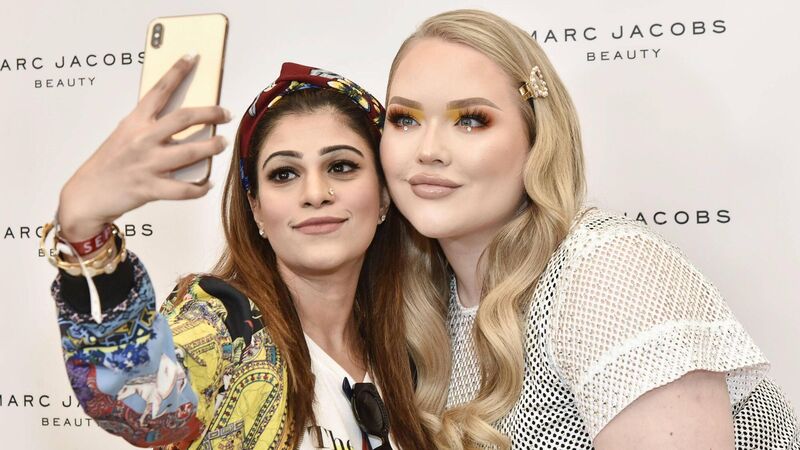Tom Dunne's Music & Me: Four simple steps to Make Eurovision Great Again

Nikkie Tutorials, right, shone as a presenter on this year's Eurovision. Picture: Getty
Pin this note on your fridge. Well, don’t pin it, use a fridge magnet. Read it again next January when there is still time to SAVE US ALL. If you don’t read it and act immediately THEY WILL DO IT AGAIN! Good luck and godspeed.
If we ever want to win Eurovision again, we must:
1. Convince everyone who has ever won it for us before (yes Johnny, Niamh et al. I am looking at you) or has helped them IN ANY WAY, or has been on the Late Late Show more than three times to talk about it, to take part in an exciting new polar exploration trip.
This trip, departing from Tierra del Fuego next April, will be tasked with seeing if the Magnetic South Pole is still where it was when first discovered by Shackleton’s men in 1909. Many believe it has moved. We need to know.
2. With them, em, ‘engaged,’ point out, frequently and loudly, that yearning for the days when ‘Ireland won all the time’ is like tuning into the top ten of 1967 (the Sgt. Pepper year) and hoping to hear the music of 1941. And much as we loved the music of Glenn Miller, Woody Herman and Ernest Tubbs, by the Summer of Love even they knew it was time-up.
3. Discretely promote RTÉ to executive director – twice removed, whilst inviting in the young bucks like Netflix, Spotify and Apple to show us what they and all their shiny tech can do with our entry into the world’s biggest song contest.
4. And then the masterstroke: announce a €10K prize for the best entry via TikTok or similar platforms and let them off. Entries limited to Irish people or anyone who can spell Ireland, like in the glory days of Jack Charlton.
Sit back and wait. For this is the ‘digital native’ generation, a generation obsessed with performance, recording itself and sharing. A generation that craves ‘likes’ and can also use songwriting and video editing software the way Johnny Logan used hair gel.
The song and performer that could next win Eurovision for us will be trending before it reaches a judge’s ear.
These revelations came to me as we watched this year’s competition. We had hardly taken our seats before my children had fainted with excitement. One of the presenters was called Nikkie de Jager. “It’s Nikkie Tutorials,” they gasped in awe.
Nikkie, a make-up tutorial internet sensation, was described as “Eurovision’s first trans presenter“ but it would have better to describe her as Eurovision’s first decent presenter, and the best on the night by a county mile. The others had that TV-wannabe look, that air of, ‘if this goes well I might get daytime'.
They could have presented Eurovision in any previous decade. Nikkie was more 2021 than 2021 is... at home, in her element and loving it.
The second revelation came just before Italy’s performance. At this point the younger jury’s favourites were Iceland (wonderful), Finland (what was not to like) and Switzerland in an unenthusiastic but ‘just might win it’ kind of way. England, France and Germany had caused actual vomiting.
But then just as the Italians prepared to hit the stage the presenter mentioned that they already had “30 million hits on YouTube”.
This was the point at which they could have just stopped the competition. When the lads arrived on stage, full of Jane’s Addiction attitude, tattoos, eye make-up and zero body fat it was time to start breaking down the set.
In the midst of the mayhem, Sinead O’Connor tweeted “l always wondered why they've never sent me to sing the Eurovision song for Ireland: why send a child to do a man's job, like? I'd have blown them all off the stage.”
A performance by Sinead, on that stage, in front of that audience, would stop clocks worldwide. A smile, like the one she gave at the end of recent Late Late performance of Nothing Compares, would light up the world.
France’s entry this year was almost like an attempt to re-create Edith Piaf, a pastiche of their own greatest singer. With Sinead, we have the genuine article.
Proof of the pudding, that Eurovision has passed to a much younger generation, but one that loves it with a renewed fervour came Monday evening. I was hoping to watch a quick police procedural when my children accosted me: “Da,” they asked, “can we watch Eurovision again?”


